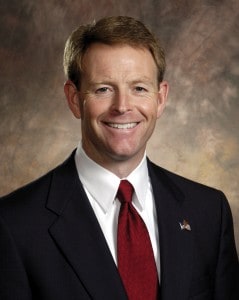Some years ago I was speaking at Ohio State University. And I was taken to see the Wexner Center of the Arts. They wanted me to see it, and I wondered why. And when I walked into that building I said, “What is this building all about?” There are staircases that go nowhere. There are pillars that serve no purposes. And the man [showing me around] said, “This is America’s first postmodern building, and the architect said, ‘If life has no purpose, why should our buildings have any design or any purpose?’” So he built it at random, without any purpose, as it were. I said, “I have one question for you.…Did he do that with the foundation as well?”
—Ravi Zacharias (disclaimer)—
Key point: Wise builders build on a foundation of bedrock, but certain other builders don’t even consider the foundations on which they are building. As Christians, we must remain humble and loving, but we also must warn those around us building on unstable foundations to reconsider and start over. It isn’t just individuals who need to be warned, either — society does. The task is difficult, but the cause is worthwhile! The truth will be a friend to all who cooperate with it.
Access all the articles in this series, as well as articles in a related series, here. A Bible study titled “Could Jesus Have Been a Good Teacher Without Being God?” is available here.
It is no coincidence that in Matthew’s record of the Sermon on the Mount in Matthew 5–7, Jesus concludes His presentation with these words. (Also see see Luke 6:46-49).1
7:21 “Not everyone who says to Me, ‘Lord, Lord,’ shall enter the kingdom of heaven, but he who does the will of My Father in heaven. 22 Many will say to Me in that day, ‘Lord, Lord, have we not prophesied in Your name, cast out demons in Your name, and done many wonders in Your name?’ 23 And then I will declare to them, ‘I never knew you; depart from Me, you who practice lawlessness!’
24 “Therefore whoever hears these sayings of Mine, and does them, I will liken him to a wise man who built his house on the rock: 25 and the rain descended, the floods came, and the winds blew and beat on that house; and it did not fall, for it was founded on the rock.

26 “But everyone who hears these sayings of Mine, and does not do them, will be like a foolish man who built his house on the sand: 27 and the rain descended, the floods came, and the winds blew and beat on that house; and it fell. And great was its fall.”
28 And so it was, when Jesus had ended these sayings, that the people were astonished at His teaching, 29 for He taught them as one having authority, and not as the scribes.

What are we to make of Jesus’ statements? Let us not miss the fact that they aren’t just admonitions or recommendations, but also warnings. Go here for a brief discussion of eight elements in this passage.
Jesus’ Words and the Words of God’s Law Are Not Relative, But Absolute
This article is part 2 of a series titled “Avoiding Ethical Quicksand and Helping Members of the Next Generation Avoid It as Well.” Both posts, and a third one next time, focus on the disastrous effects of relativism, the belief that each person can make up his or her own truth and live according to the set of values he or she “creates” without experiencing negative consequences. Relativism is widely accepted in today’s culture. A recent survey found that
58% of Americans believe that no absolute moral truth exists and that the basis of truth are factors or sources other than God. Seventy-seven percent said that right and wrong is determined by factors other than the Bible. Fifty-nine percent said that the Bible is not God’s authoritative and true Word and 69% said people are basically good.

In this cultural mix, the meanings of words matter. Can we really be surprised that when people believe individuals can make up their own truth, words lose their shared meanings? We began exploring this theme in part 1. It’s inescapable. Living in a relativistic world means living in a world where people increasingly make up their own definitions for words with which you thought you were familiar. Of all people, Christians need to be keenly aware that relativism stands in opposition to the idea of absolute truth, the notion that moral and ethical standards exist objectively and externally, and that they apply to all people, everywhere, under all circumstances.
Living in a relativistic world means living in a world where people increasingly make up their own definitions for words with which you thought you were familiar.
Is it wrong to murder? to lie? to steal? to cheat on one’s husband or wife? Does it matter how a person treats his or her parents? Does it really matter if a person ignores or reveres God?
Relativism says, “Well, it depends.” Relativists will prop up arguments for doing what they wish to do with euphemisms that make evil actions more palatable. Yet,
-
-
- if the God of the Bible is real and His Ten Commandments are authentic moral and ethical guidelines for living, then absolute truths exist, and right and wrong exist. Moreover, people are accountable to God.
- Further, if Jesus was God and could not lie (as the Bible teaches), then His words are indeed are a foundation of bedrock. This means they are absolute.
-
Therefore, murder, lying, stealing, and adultery really are wrong because each one is an affront to God’s character and His revealed will. Also, it matters a great deal how a person treats his or her parents and how he or she responds to God. As we have said, God will hold people accountable for the choices they make and the actions they perform.
The English word sayings in Matthew 7:21-29 (see vv. 24, 26, and 28) represents the Greek word logos, which means “word” or, in its plural form, words. In Luke 6:47 the word sayings stands for the very same Greek word. The bedrock foundation upon which Jesus’ followers are to build their lives is made up of His words, which include His affirmations of God’s moral law. Mark it down. Jesus’ words are not relative. They are true! They are absolute. You can take everything He has said to the bank!
The bedrock foundation upon which Jesus’ followers are to build their lives is made up of His words!
God Does Not Change, And Neither Do His Guidelines for Living
The apostle James wrote, “Every good and perfect gift is from above, coming down from the Father of the heavenly lights, who does not change like shifting shadows” (James 1:17, NIV). God is immutable. He does not change, nor do His teachings, His moral and ethical guidelines. Indeed, they are bedrock; they are the solid, stable foundation upon which you can and should build your life.
For Christians in America in the 21st century, this necessarily will mean swimming against the cultural tide. We’ve alluded to this already, but I’d like to toss out a few examples so you can see the extreme instability of the culture’s foundation. We’ll consider one of them now and a few more next time. Even though opposing the conclusions of society on a variety of matters like this likely will be costly, the stands we must take will be worth the price of taking them.
What Does the Term Sex Mean?

On October 5, 2019, I released a Word Foundations article titled “Are We on the Verge of Saying Our Final Goodbyes to Authentic Liberty in America?” The article anticipated the oral arguments in a case before the Supreme Court called Bostock vs. Clayton County. At the time those arguments were just three days away. Several cases had been “rolled into one,” but my article focused on the case involving Harris Funeral Homes in Michigan. Amy Stephens, an employee of the funeral home who had been born a male and hired as a male by the funeral home, eventually insisted on presenting as a woman, even while working as an employee serving grieving families. I wrote,
At issue is the definition of the word “sex” in Title VII. Does the law prohibiting employment and workplace discrimination based on sex also prohibit employment and workplace discrimination based on gender identity? In other words, does the term “sex” include gender identity? Certainly it didn’t in 1964 [when the law was enacted]. If the term sex is reinterpreted by the Supreme Court to include gender identity, the Supreme Court effectively will have rewritten, not merely interpreted, the law. Constitutionally, in the United States, only legislative bodies such as Congress have the authority to write or rewrite laws.

Even though the court had no authority to say the word sex in the 1964 civil rights law now means “gender identity,” it did; thanks in part to Justices John Roberts and Neil Gorsuch. Here we see again the redefining of words, a move that increasingly places society and the culture on the “foundation” of quicksand. Gorsuch’s being part of the majority and writing the majority opinion was particularly disappointing to conservatives.
The ruling came on Monday, June 15, 2020. On the following Friday, Family Research Council President Tony Perkins strongly criticized Gorsuch in an article in the Washington Times. He called the Court’s decision in Bostock vs. Clayton County “the Roe v. Wade of religious liberty.” Once again, the Court had discovered a “right” that is “found nowhere in the U.S. Constitution.” Once again, the Court “redefined words to suit a political agenda.” Perkins continued,

There’s no way to put a spin on this. Justice Gorsuch botched it.
In 2018, Justice Gorsuch wrote, “Written laws are meant to be understood and lived by. If a fog of uncertainty surrounded them, if their meaning could shift with the latest judicial whim, the point of reducing them to writing would be lost.” That’s exactly right — and exactly what the justice did not do when the court issued his opinion on homosexual and transgender “rights” on Monday.
In Bostock, Justice Gorsuch wrote that the Supreme Court “normally interprets a statute in accord with the ordinary public meaning of its terms at the time of its enactment.” He even admits that when the Civil Rights Act, the basis of the court’s action, was enacted in 1964, the term “sex” referred “only to biological distinctions between male and female.” But then, he writes, this is just a “starting point” and concludes that “it is impossible to discriminate against a person for being homosexual or transgender without discriminating against that individual based on sex.”
In making this claim, Justice Gorsuch is redefining nothing less than the very nature of humanity. There are two sexes, male and female. Unlike Justice Samuel Alito in dissent, Justice Gorsuch did not seriously engage the realities of biology. This is not a theological assertion. It’s a matter of science. The National Center for Biotechnology Information, part of our National Institutes of Health, reports that “biological differences” between men and women “have long been recognized at the biochemical and cellular levels.”
In Bostock, Justice Neil Gorsuch redefines “nothing less than the very nature of humanity.”
—Tony Perkins—
The implications for religious liberty, just as Tony Perkins has indicated, are ominous. And they’re ominous for parental rights as well. They’re ominous across the board. America has traded a bedrock foundation for a foundation of quicksand!
But there is hope. Next time, we’ll talk about some of the ways that, despite the challenges before us, we as Christians can effectively counter the myths and lies that pervade our culture. Meanwhile, let me encourage you explore the themes in this post, which is titled “Three Lists that Cut Through the Fog that Otherwise Distorts the True Meaning of Marriage.”
Also, stay tuned!
Copyright © 2020 by B. Nathaniel Sullivan. All rights reserved.
top image credit: Lightstock
image credit: Sermon on the Mount in stained glass, Arlington Street Church, Boston, Massachusetts
Unless otherwise indicated, Scripture has been taken from the New King James Version®. Copyright © 1982 by Thomas Nelson, Inc. Used by permission. All rights reserved.
The passage marked NIV was taken from The Holy Bible, New International Version®, NIV® Copyright © 1973, 1978, 1984, 2011 by Biblica, Inc.® Used by permission. All rights reserved worldwide.
Notes
1Jesus preached a similar sermon at “a level place” (see Luke 6:17-49). Our Lord concluded that sermon with essentially the same illustration (see vv. 46-49).

[…] this point, but I can think of none better than Matthew 7:21-29. Commenting on this passage in a recent post, we […]